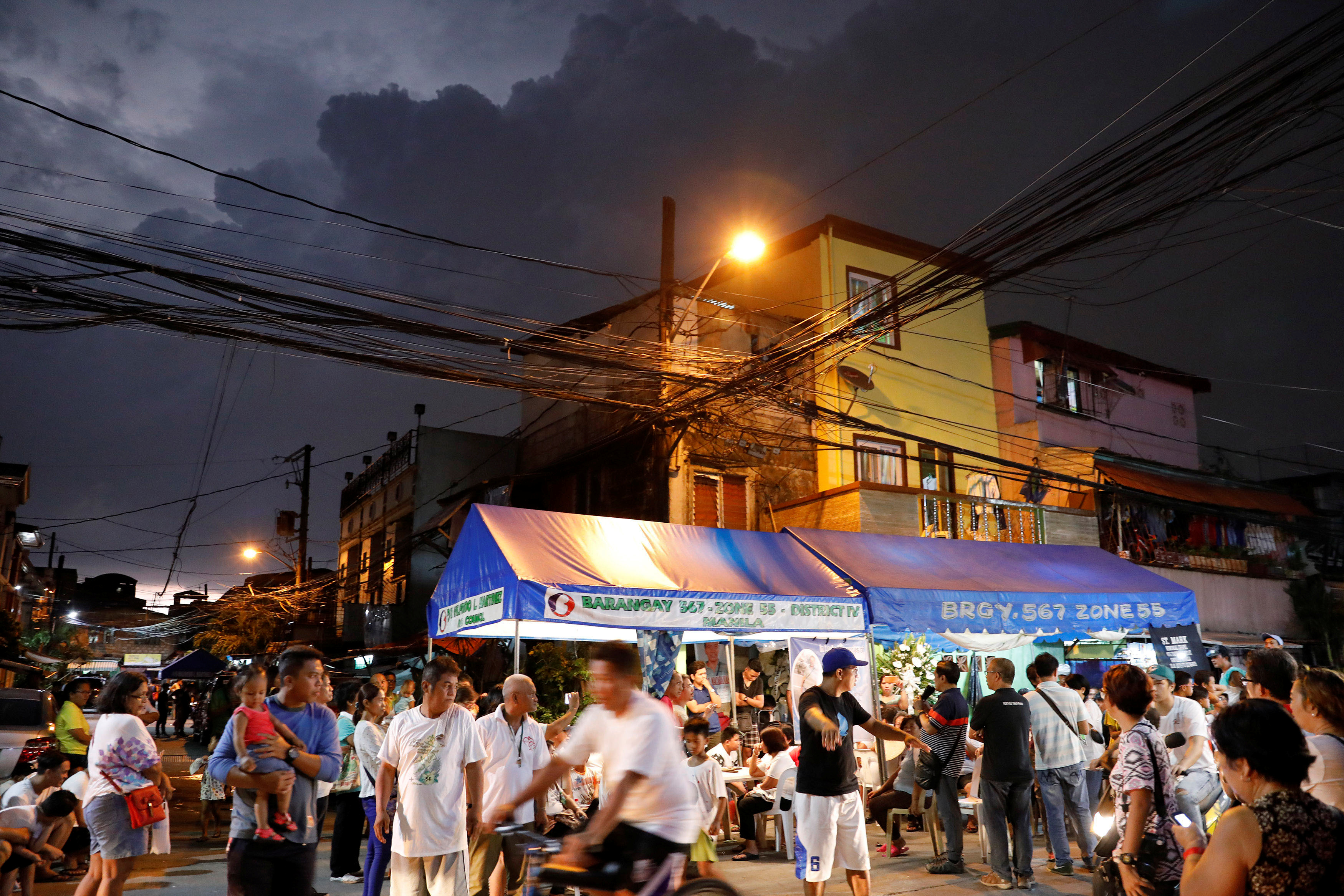
By Brian Ellsworth
CARACAS (Reuters) – Venezuela’s opposition is shifting its focus to forthcoming state elections as protests aimed at ousting President Nicolas Maduro have subsided following the installation of an all-powerful, pro-government legislative body.
Four months of violent demonstrations in which at least 125 people were killed have all but stopped due to fatigue among protesters and disillusionment at seeing the ruling Socialist Party cement vast powers despite the concerted opposition push.
Most opposition leaders say October’s elections for governors in all the country’s 23 states now represent the best means to keep pressuring Maduro, providing a chance to win some of the governorships at stake and an opportunity for a protest vote to demonstrate the president’s unpopularity.
The opposition, which boycotted the elections for the Constituent Assembly, accused electoral authorities of inflating turn-out figures for the July 30 vote.
There are few options available for adversaries of Maduro, who maintains control over the OPEC nation despite widespread public anger about triple-digit inflation and chronic shortages of basic goods.
“Venezuelans are fighting against a continued rupture of the constitutional order,” said opposition leader Henrique Capriles, who is governor of Miranda state but who is not running in next month’s election and who is barred from holding public office once his term expires.
Nevertheless he urged Venezuelans to vote in the elections.
“If you abstain, then it’s more difficult to bring about the political change that all Venezuelans want,” Capriles told reporters. Capriles has called his own barring from office – because of alleged irregularities in managing public funds – a Socialist Party move to sideline him.
Governorships provide little in the way of a platform to directly challenge Maduro. But they are coveted by politicians because they offer launching pads for political careers and the possibility to channel state resources toward political allies.
The opposition’s participation in next month’s poll ensures it will have witnesses at voting stations and at the election council headquarters. Opposition coalition leaders say that should allow them to quickly identify any attempt to alter results.
However, some who spent months on the streets with the encouragement of opposition leaders, especially young members of a self-styled “Resistance” movement, feel betrayed.
They say turning attention so quickly to the election legitimizes what they view as Maduro’s authoritarianism and insults the memory of slain protesters. They also see a contradiction with the opposition’s decision to boycott July’s vote for the Constituent Assembly.
Maduro pushed for the creation of the assembly, which is meant to rewrite the constitution but which has no formal check on its powers, saying it would restore stability to a country in turmoil over the widespread anti-government protests.
It has broadly supplanted the Congress, which the opposition won control of in a 2015 landslide vote.
Small opposition party Vente Venezuela and its founder Maria Corina Machado, who has a high profile in the media but limited influence, broke with the opposition’s Democratic Unity coalition over its decision to join next month’s vote.
CANDIDATES TO BE BARRED?
The main opposition parties have nominated candidates and opinion polls show that in a free and fair vote they would likely take a majority, compared to just three governorships they won in 2012.
But the Socialist Party-controlled Constituent Assembly may bar some of them from running or from holding office if they win.
Last week, the assembly said it would seek the prosecution of opposition leaders for treason for attempting to block international financing for Maduro’s government and for allegedly seeking a military intervention against him.
Government leaders say the end of the protests is evidence the Constituent Assembly has brought peace to the country. They add that the opposition’s decision to register candidates is a sign they believe in the electoral system despite their complaints of fraud.
“The Constituent Assembly has calmed the country,” said assembly president Delcy Rodriguez. “As soon as it was inaugurated, Venezuela returned to tranquility.”
Maduro says the country is a victim of an “economic war” by the opposition, and insists the assembly is a symbol of Venezuela’s vibrant democracy.
The opposition took to the streets in late March to protest a Supreme Court ruling that briefly allowed it to assume the powers of Congress, and maintained near daily rallies until the end of July.
By then, street mobilizations were in decline and what had initially been massive marches steadily gave way to violent clashes between security forces and small groups of hooded demonstrators throwing rocks and at times vandalizing property.
Recent opposition rallies have attracted only a few hundred people.
U.S. President Donald Trump has imposed sanctions on top ruling Socialist Party officials, in some cases for their participation in the Constituent Assembly, while the European Union and most Latin American nations condemned the body.
Maduro has acquired the reputation as a dictator around the world, said opposition leader Freddy Guevara in an interview in August broadcast on the Internet, adding that street protests were crucial in shifting public opinion.
“I’m convinced that we have to confront the dictatorship in any situation that we can,” said Guevara.
(Reporting by Brian Ellsworth; Editing by Andrew Cawthorne and Frances Kerry)










